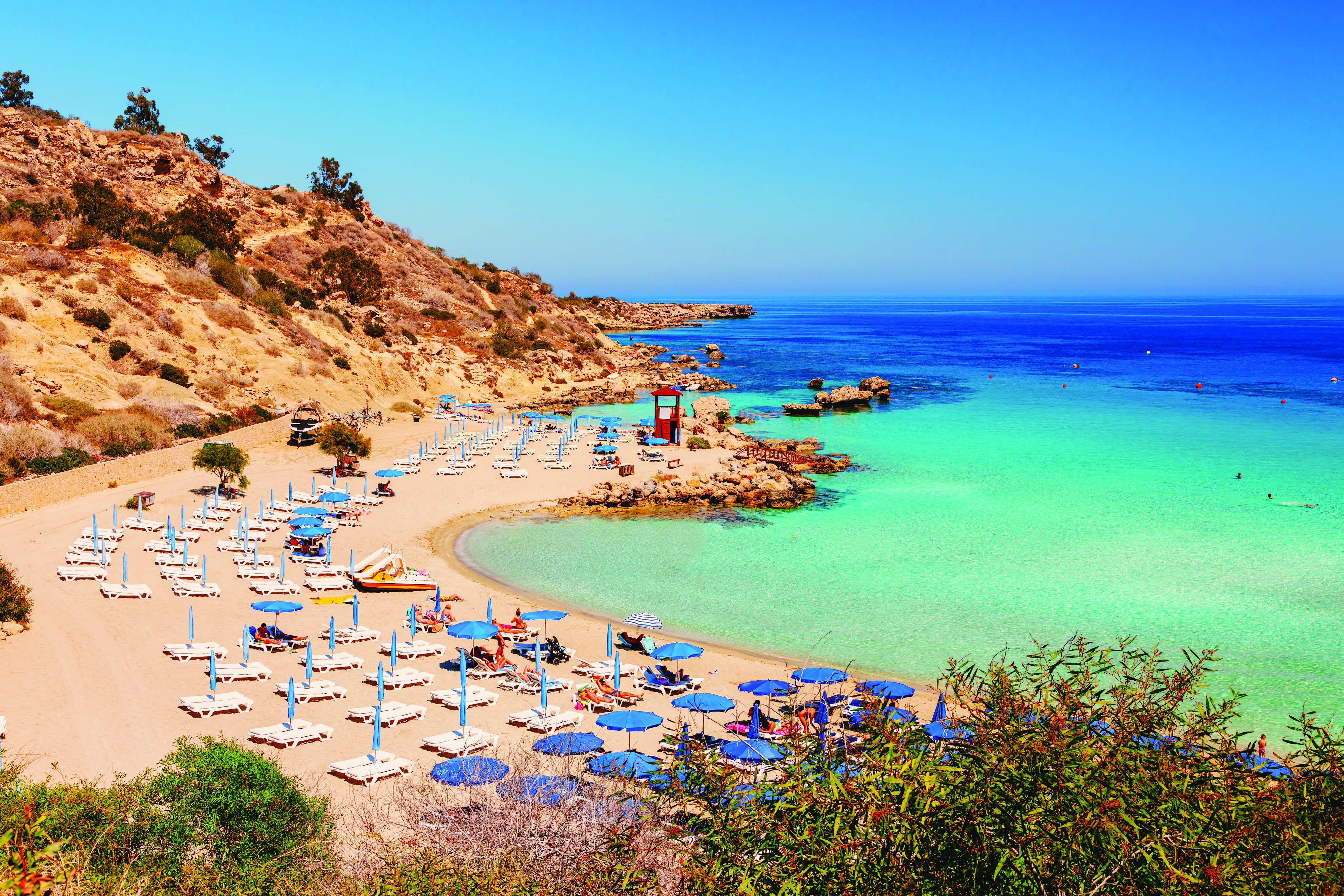Hotels lead the push for year-round, eco-friendly tourism
Hotels in Cyprus are increasingly adopting the Green Key certification, as the scheme gains traction as part of the island’s broader tourism reform. The certification signals compliance with environmental standards and is becoming a factor for both business competitiveness and regulatory expectations.
“Since the global market for tourism and services, such as hotels and restaurants, now requires green certifications, one of the bestknown certificates with an environmental and sustainable approach is the Green Key,” Cyprus marine environment protection association (Cymepa) general secretary Michalis Ierides told the Sunday Mail.
Cymepa serves as the intermediary body for the Green Key programme in Cyprus. It inspects hotels that apply for certification, ensuring compliance with environmental standards. Certified establishments commit to audits, staff training, energy and water efficiency, and sustainable sourcing of supplies.
The scheme is increasingly integrated into hotel operations.
Establishments adopting Green Key standards can appeal to international markets with growing interest in sustainability. Certification can also support marketing, partnerships, and potentially higher occupancy rates, though outcomes vary by property.
“Many hotels have already started implementing green policies. Some have received the Green Key, and others meet even more demanding environmental standards,” said Christos Angelides, general manager of the Cyprus hotel association (Pasyxe). He said that two additional hotels were recently approved for certification.
Speaking to Sunday Mail, Angelides emphasised coordination between producers, hoteliers and public services.
“The Larnaca regional tourism board (Etap) is organising an event in November to bring the hotel and restaurant sectors closer to Cypriot producers. It’s something that should have started years ago,” he said.
The adoption of Green Key certification aligns with broader sustainability efforts in Cyprus’s hotel sector. Pasyxe identifies this transition as a strategic priority, aiming to create a tourism product that is internationally competitive while following sustainability principles.
“The Blue Flag label applies to beaches, while the Green Key is for hotels,” Angelides explained. He also explained that other sustainability certifications, such as Travel Life, Green Leaf and ISO 2041, linked to circular economy practices, are being adopted.
Operationally, the Green Key programme provides hotels with clear guidance.
“For example, one criterion on food states that products produced in Cyprus should be preferred to reduce transport costs. There are, of course, many other criteria,” said Ierides.
He identified three core objectives of the certification: staff training, operational efficiency and genuine environmental promotion.
The programme forms part of a wider policy effort to develop a resilient, year-round tourism model in Cyprus. Reports indicate that some hotels in key resort areas have extended their opening seasons, reflecting practical steps toward this goal.
Tourism contributes more than 13 per cent of Cyprus’s GDP and supports approximately 120,000 jobs, according to official statements from the president. The deputy ministry of tourism has stated that the traditional tourism model “has essentially completed its cycle.”
In response, €13.2 million is earmarked in 2026 for hotel upgrades, authentic experiences, and initiatives supporting a green and digital transition, combining EU recovery and resilience plan funding with national resources.

For hotel operators, Green Key certification entails investments in staff training, infrastructure, monitoring water and energy use, waste management, and supply chain adjustments.
While costs differ between establishments, the certification offers an approach to meet government and market expectations for sustainability and operational standards.
“The certification demonstrates that hotels are not only meeting environmental standards but are also actively engaging with the future of tourism,” said Ierides.
“It’s about creating hotels that are competitive, responsible, and integrated into the local community.”
The programme encourages collaboration across stakeholders. By linking producers, hotels, and public agencies, Green Key certification can support local economies, enhance social impact and strengthen environmental practices.
For visitors, the implementation of the programme may be observed through hotel practices such as energy efficiency measures, water conservation, sustainable sourcing and staff training. The shift indicates a move from tourism defined solely by sun, sea, and scenery to one where operational quality, sustainability and community engagement are also considered.
President Nikos Christodoulides has emphasised the importance of reform in the sector. In February, he highlighted policies targeting upgrades for hotels in remote and mountainous areas, support for catering establishments, and new destination themes.
Measures such as foreign staff employment, winter training programmes, and faster application processing were linked to extending the tourist season beyond summer. In October, he added that tourism “plays a key role in strengthening social cohesion, supports local communities and contributes to the preservation of our cultural and natural heritage.”
Green Key certification provides hotels with a concrete method to engage with these government priorities. The label signals alignment with policy goals, including a transition from volume-based tourism to value-focused, year-round operations that incorporate sustainability and community engagement.
Global trends indicate that sustainability certification is increasingly requested by international travellers and business partners. Hotels adopting Green Key standards can meet these expectations, enhancing credibility and demonstrating environmental responsibility.
Cymepa maintains a registry of certified hotels and provides guidance for new applicants, supporting them through audits, staff training, and operational adjustments. Certification involves monitoring energy and water consumption, sourcing locally when possible, managing waste efficiently and training staff in sustainable practices.
Cyprus hotels are now evaluated not only for amenities and location but also for operational efficiency and environmental responsibility.
Green Key certification reflects this shift, offering a visible indicator of compliance with environmental standards and engagement with sustainability principles.
As more hotels achieve certification and coordination improves between producers, hoteliers, and public agencies, Cyprus is positioning itself as a destination where environmental management, local production and hospitality practices converge.
Successful implementation depends on the speed and effectiveness of operational changes, including translating green standards into marketing and operational advantages while supporting year-round tourism.
In practical terms, hotels are increasingly integrating sustainability into core operations rather than treating it as an optional feature. Investments in staff capacity, energy and water monitoring and supply chain improvements are designed to ensure that the benefits of Green Key certification are measurable and consistent.
With presidential support, involvement from industry associations, and active participation from stakeholders, Cyprus is gradually shifting towards a tourism sector that balances environmental, social, and economic objectives.
Green Key certification serves as one of the tangible markers of this change, reflecting both government policy and market expectations.
Ultimately, the Green Key programme is positioned as a tool for hotels to demonstrate environmental responsibility while engaging with the ongoing reform of Cyprus’ tourism sector. By integrating sustainable practices, hotels can contribute to a more resilient, competitive and year-round industry.






Click here to change your cookie preferences